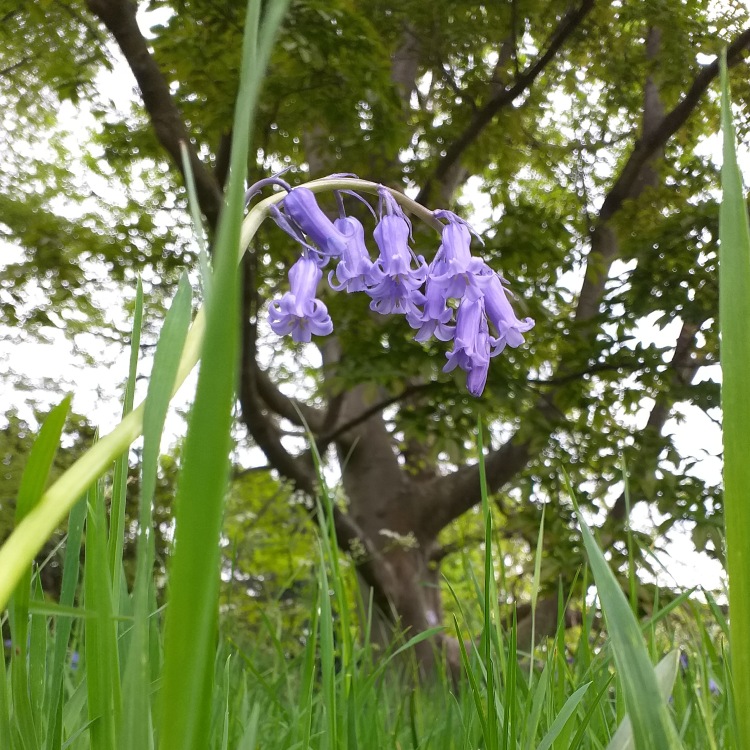
I’m a Christian and this post is being published on the First Sunday in Advent – the beginning of the church season that leads up to Christmas. Yes, I know the Christmas lights have been up since October but in religious terms it isn’t Christmas yet! There are four Sundays in Advent, each of which is linked in the Anglican Church to a particular part of the Christian Story that led up to the birth of Christ at Christmas. And having the sort of twisted brain that’s charmed by oblique links I’m going to tie my Sunday blogs in the run up to Christmas to the relevant Advent themes. Yes really. I’m honestly like this – you must have noticed.
The first Sunday is when my church remembers the Patriarchs. That’s not patriarchs as in the patriarchy particularly – it’s more about deep roots and family. So it’s a good opportunity to talk about the family heritage that many autistic people have. The scientific consensus is that autism may be genetic, and anecdotal evidence from my experience suggests that it’s pretty common for an autistic person to have autistic family members. It’s pretty common for women of my generation to get their (late) diagnosis as a result of one or more of their children getting diagnosed, for example.
So what difference does it make to have autistic family? It can be both wonderful and problematic. (I should say that in my own family, I’m the only one with a diagnosis so what I’m writing is based on a range of people’s experiences.) I find that talking to and being with other autistic people can be hugely liberating as I’m with a group of people that just “get it”. So many sources of stress and misunderstanding just aren’t there like they would be with neurotypicals – it’s like being able to speak my own language at last. Having a whole family like that would give an autistic person a sense of belonging that they might not get anywhere else. One would be spared the sense of being an oddity who doesn’t really fit in even at home.
On the other hand, if a whole family is autistic, it can make getting a diagnosis more difficult. Imagine that two autistic parents had an autistic child. That child might really benefit from extra help with education and adjustments at school, so the diagnosis would be useful to them. But the parents wouldn’t see anything “different” about their child – s/he might play by lining up all their toys (something many autistics do) but the parents wouldn’t recognise the sign because perhaps it’s what they did in childhood too. How many adult autistics must have finally told their parents about their diagnosis only to hear “oh no love – that can’t be an autistic thing because I do that too!”
Similarly, if parents are undiagnosed autistic, they may have trouble advocating effectively for their child because they don’t have the neurotypical skills to make themselves persuasive. If the parents have a diagnosis, hopefully the knowledge of how their brain is wired would have enabled them to develop coping strategies. For example, I now feel much more empowered to influence people about what I need because I have my diagnosis. And it also makes me feel able to speak up for others.
But actually I hope we’re in a transition phase; today’s children tend to have a diagnosis but today’s parents seldom have. That won’t happen in the next generation – diagnosed parents will be the norm as today’s children grow up and have children of their own. Those diagnosed parents will be able to role model how to live a successful autistic life to their autistic children. There’s every reason to think autism has always been with us and always will be – but the next generation will do better than my generation. Society may be at a turning point where the darkness of fear and ignorance changes towards the light of knowledge and acceptance. And if that isn’t a suitable message for the start of Advent, I don’t know what is…
My elder sister Felicity was classically autistic..because of her my mother founded the NPBCH which became Mencap. I have always wondered…..
LikeLiked by 1 person
Wow! That’s some amazing family heritage! And of course some of the best people are autistic 🙂
LikeLike
Yeah! By the way, Facebook changed the initials…should be: NAPBC … national association of parents of backward children….I must try and find and edit to change……Pat x
LikeLike